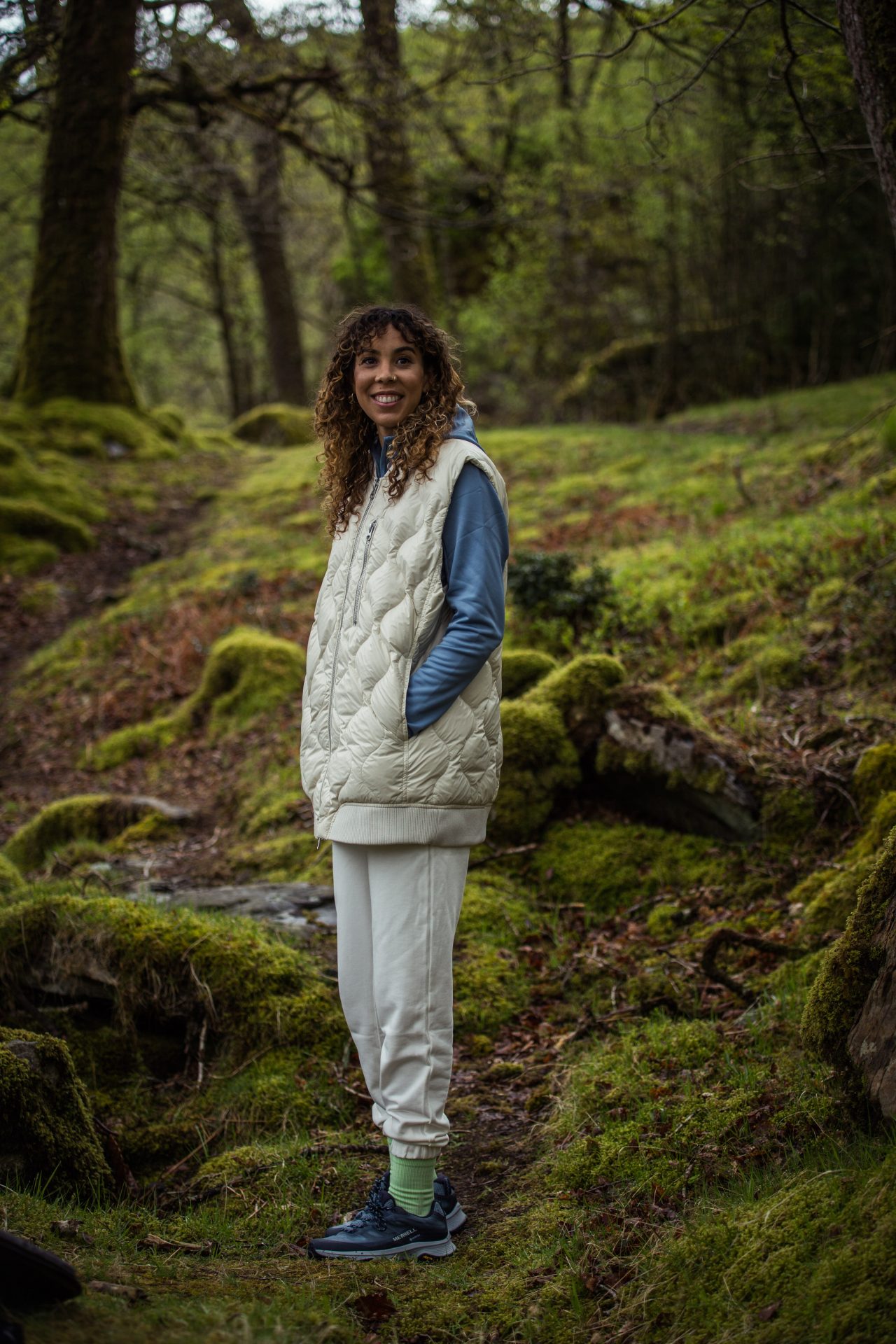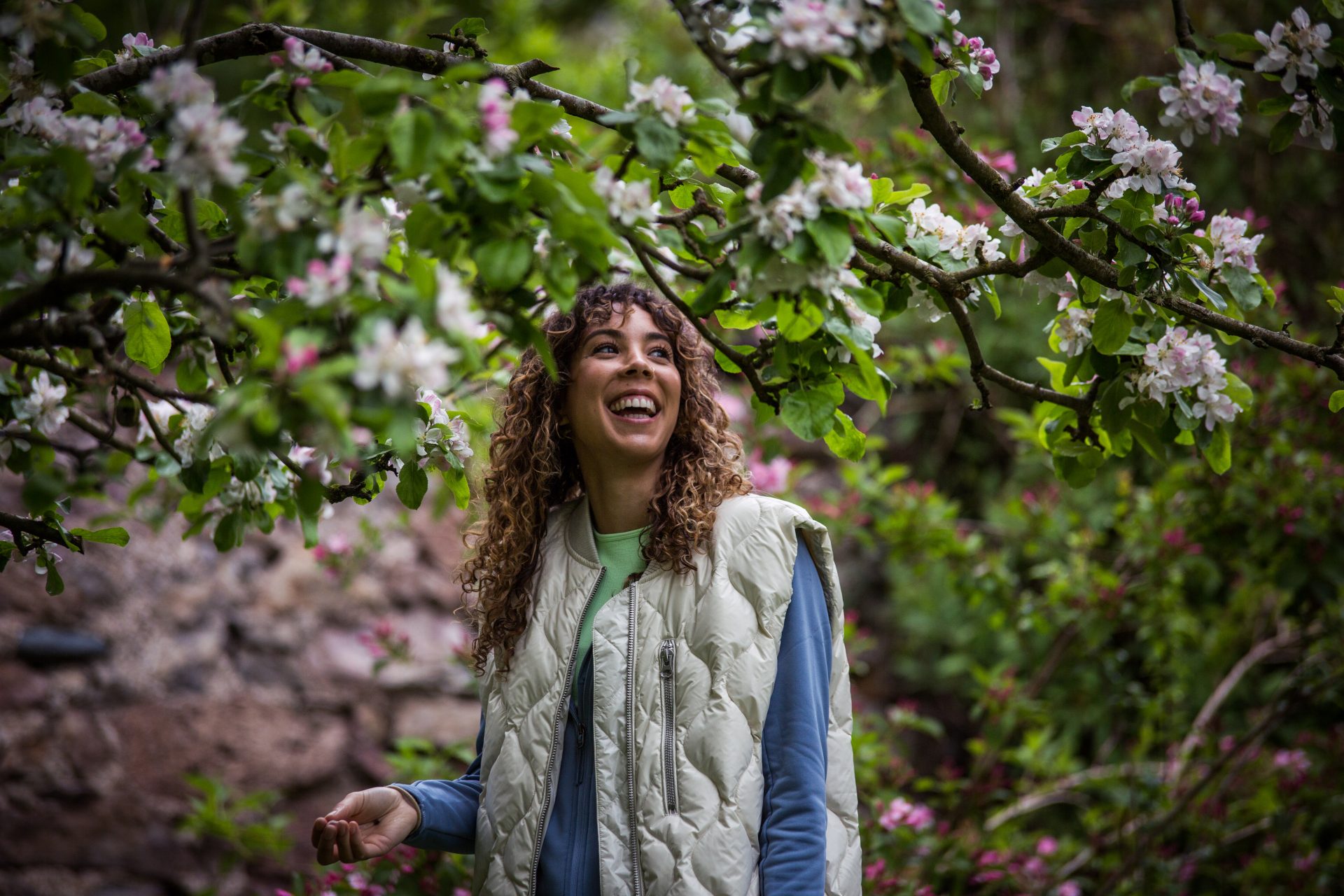A mental health doctor explains why we still need time in nature – even in our busy, post-lockdown lives.
It’s unfortunate that it took a pandemic and umpteen lockdowns for us to appreciate the outside. As the old saying goes, you don’t know what you’ve got until it’s gone.
The waves of Covid in 2020 and 2021 saw us lace up, head out and stomp around. We spoke about the mental health benefits of nature, fake commuted or scheduled lunch breaks to be outside while working from home and used our weekends to picnic among the greenery of our local parks.
Are we still committed to walking as much in 2022? Not quite – I’ve skipped my lunchtime stroll most days this week as I’ve remained glued to my laptop. And I’m not alone; increasingly, work and family are getting in the way of us spending time in nature, according to the People and Nature Survey for England. In March 2022, 16% of people cited those factors as reasons they hadn’t spent time outside, compared to 16% in March 2022.
You may also like
Walking benefits: 7 reasons why walking before work in the morning is so good for your mental health
According to Dr Jade Adams White, a mental health practitioner and ambassador for Merrell’s Out Out campaign, the fact that we’re busy is exactly why we should be spending time outside. “It seems that people have easily fallen back into old habits and forgotten how to prioritise their wellbeing and their mental health,” she says.
Now we’re back to juggling work commitments, family demands and social lives, finding an hour in the morning to walk or sit outside (especially on top of a commute) feels like extra stress. The irony is that nature is actually the relaxing antidote to our hectic, technology-driven lives.
“The research is there to show going outdoors and fostering a sense of connection with the outside will reduce my stress levels. I know it’s going to make me feel more relaxed. I know it’s going to make me more active,” says Dr White.

Her own journey to the outside also began in lockdown. “I have always loved adventure, but I had a light bulb moment when I did a walk up Helvellyn, a mountain in the Lake District. I’d gone on my own and suddenly I had a huge appreciation of nature – it was a sunny day, the views were beautiful and I felt so proud of myself for getting all the way to the top. I wanted to bottle up that feeling,” she says.
When she came down from the summit, she used the knowledge from her psychology degree to comb through the research and found robust evidence to show spending time outside improves our mental health.
Even a small amount of connection with the outside world can make a huge difference, she says, and that’s where we should start: “In lockdown, we could throw ourselves into nature. Now, we need to simplify it and embrace nature in our day-to-day.”
You may also like
Burnout: why spending 10 minutes in nature could be the key to keeping your stress levels under control
How to reap the benefits of nature
Start slow
“It’s about figuring out what makes you feel good, and for some people that is long countryside walks, but for others, it’s just 20 minutes,” says Dr White. She recommends starting with five minutes outside if that’s all you can manage right now – a little bit is better than nothing.

Bring nature to you
“I bought lots of plants inside as a simple way to increase my connection with nature throughout the day,” she says. Houseplants for mental health isn’t a new concept, but it is an effective one, with studies showing that nurturing indoor plants improves both psychological and physiological health.
Notice nature
It can seem like nothing around you is flourishing on the days you commute into the concrete jungle, but Dr White says noticing the natural world among the brick and glass has benefits.
“I advocate for mindful walking and using your senses to notice nature. A simple thing I do is notice five things I can see, four things that I can touch, three things I can smell, two things that I can hear and maybe one thing that I can taste,” she says. Perhaps that’s a bird chirping over the sound of cars or beautiful trees flourishing next to the buildings – these things will help you feel more connected.
She’s passionate about this tool given the huge barriers that exist for people spending time outside. Many of us don’t have houses with large gardens or live in rural areas that make accessing green space simple. “As a person of dual heritage, I also really want to encourage and empower people of colour to feel confident taking up space in natural places,” adds Dr White.
You may also like
Tired of the same lunchtime walk? Try guided walking workouts for a stronger body and mind
Mindfulness over fitness
Mindfulness can also help if longer hikes across more rural terrain feel intimidating, Dr White says. “With hiking, there will be some element to physical fitness needed, but I am a big believer in going at your own pace and appreciating the functionality of your body,” she says.
“It might be slightly out of your comfort zone, but focusing on how your body feels and the things around you rather than what you look like or the pace you’re walking works wonders for your mental health.”
Images: Getty/Merrell
Source: Read Full Article
